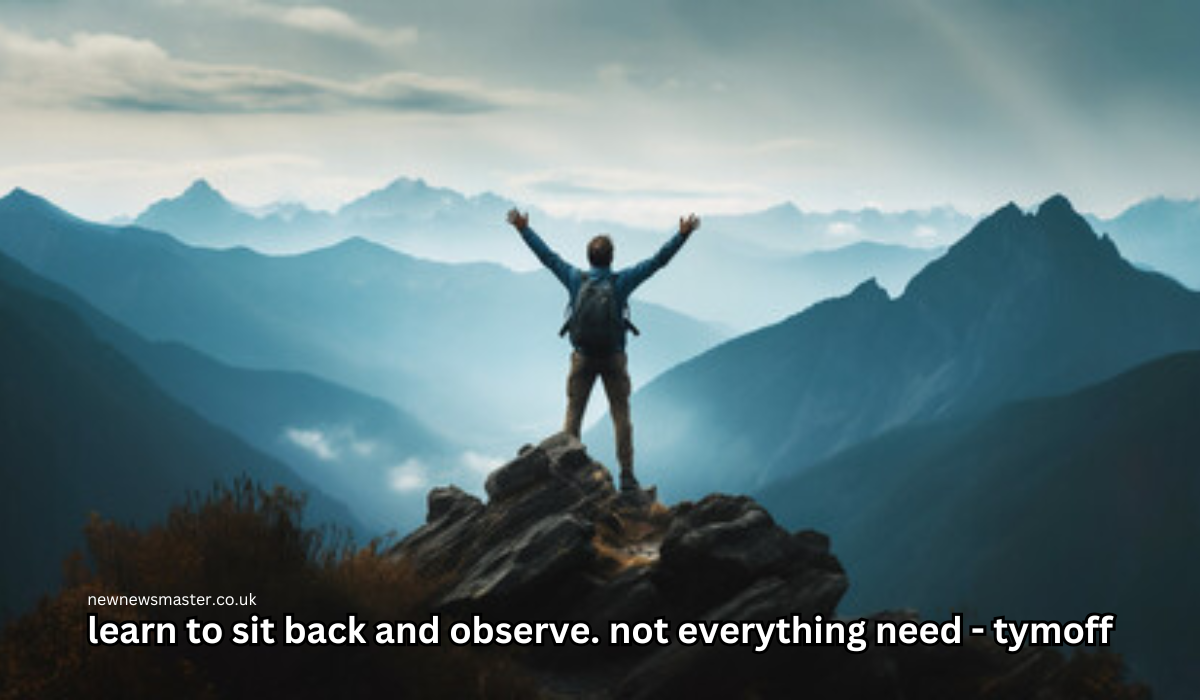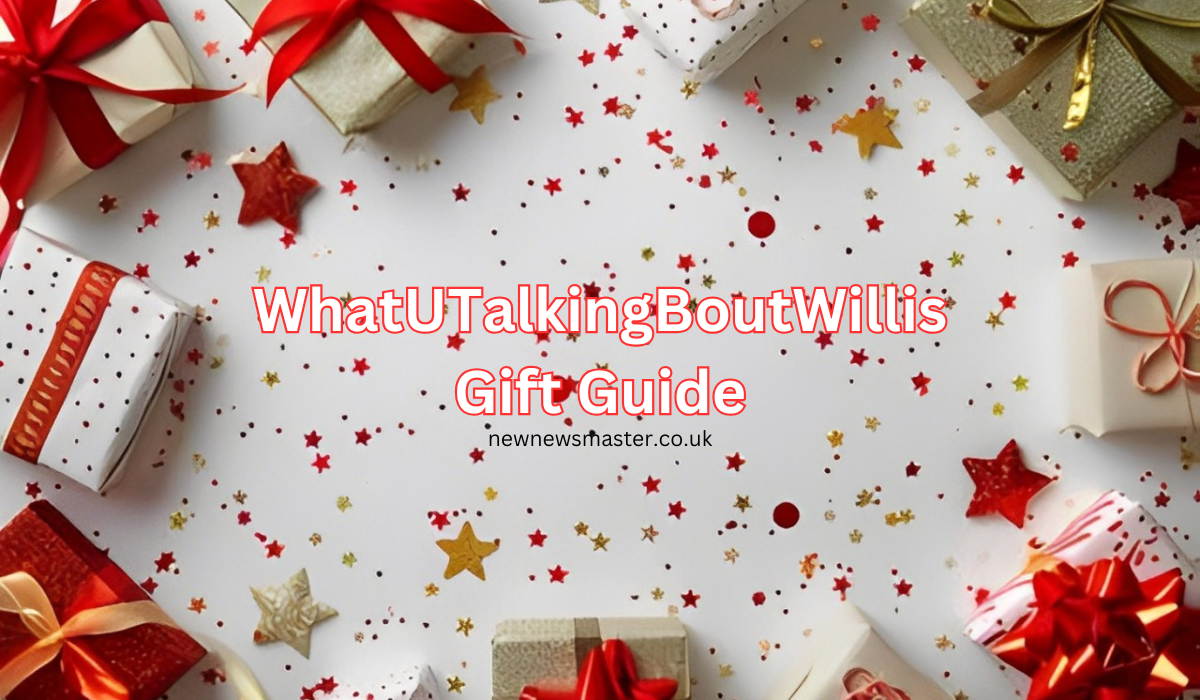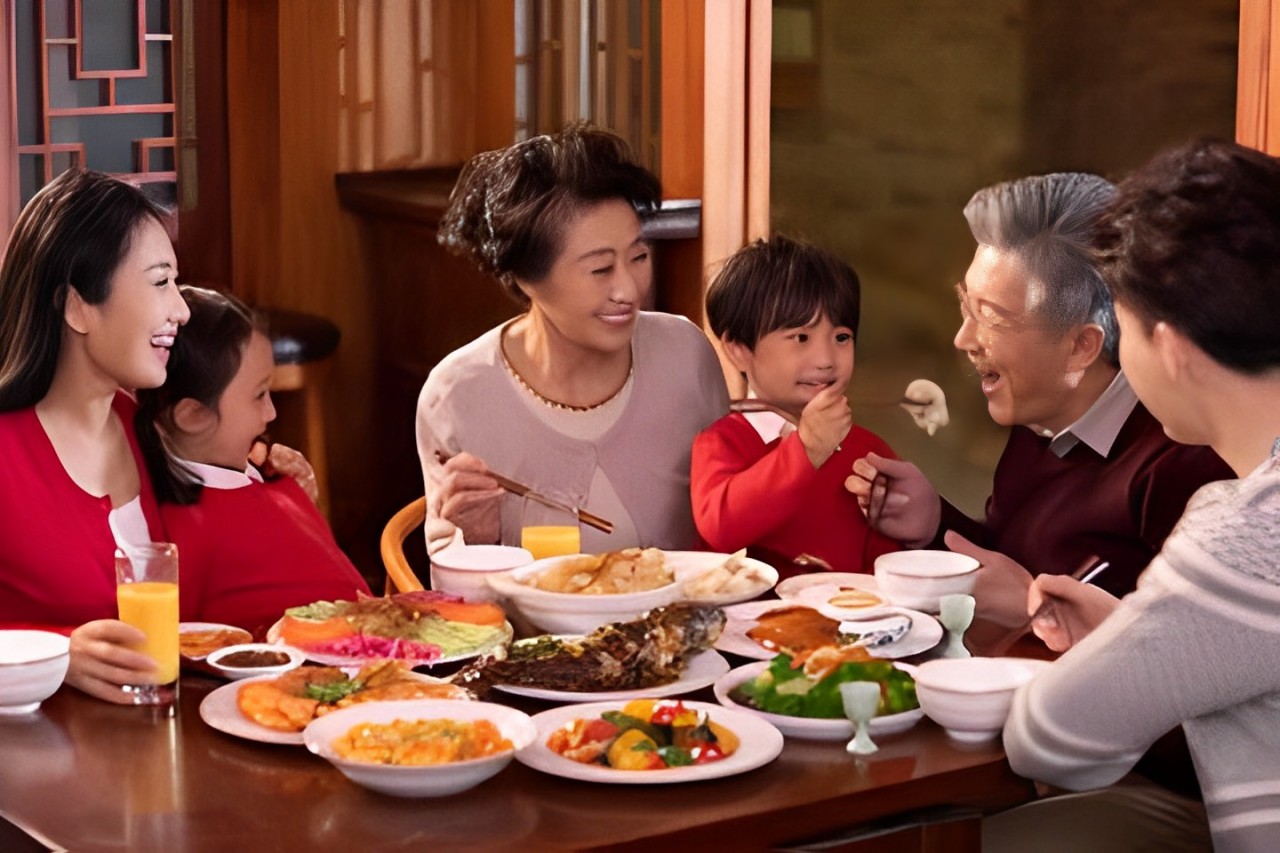Explore the wisdom behind Tymoff’s phrase “learn to sit back and observe. not everything need – tymoff a reaction.” Understand the benefits of mindfulness, self-control, and thoughtful decision-making.
Introduction
The phrase “learn to sit back and observe. not everything need – tymoff a reaction” by Tymoff carries significant weight in a world that often encourages quick responses and immediate action. In today’s fast-paced environment, we are constantly bombarded with information, emotions, and expectations that urge us to react. However, the true strength lies in taking a step back, observing the situation, and understanding the context before responding. This blog post will delve into the wisdom of Tymoff’s words, exploring the importance of mindfulness, self-control, and the power of observation in decision-making.
When we pause to reflect before reacting, we create space for clarity and better understanding. In this space, we can make choices that are thoughtful, calm, and compassionate. By learning to sit back and observe, we tap into our inner wisdom, allowing us to navigate challenges more effectively.
The Nature of Reactive Behavior
Reactive behavior, although often instinctual, can sometimes lead to unnecessary conflicts and emotional turmoil. This behavior is often fueled by external triggers such as anger, frustration, or stress, which compel us to respond quickly without considering the consequences. In these moments, we are at risk of making decisions that we may later regret.
However, when we “learn to sit back and observe,” we create the opportunity to slow down and process our emotions before reacting. This simple yet powerful shift enables us to choose a response that aligns with our values and long-term goals, rather than being driven solely by immediate emotional impulses.
Understanding the nature of reactive behavior is crucial. When we are constantly reacting to external stimuli, we give away our power to the circumstances around us. This leaves us feeling like victims of the world rather than active participants in shaping our experiences.
By adopting a mindset of observation, we regain control. Instead of automatically reacting, we create a pause where we can choose how to engage with the situation, fostering a sense of empowerment and inner peace.
The Science Behind Mindfulness and Self-Control
Mindfulness, which involves being fully present in the moment without judgment, plays a crucial role in developing self-control. The science behind mindfulness reveals that our brains are wired to react quickly to stimuli. This is a survival mechanism that helps us respond to threats in an immediate and instinctive way. However, in the modern world, this reactionary approach often does not serve us well.
Research has shown that mindfulness can improve our ability to regulate emotions, reduce stress, and enhance cognitive function. By practicing mindfulness, we train our brains to become more aware of our thoughts, emotions, and physical sensations, creating a space for reflection before responding. This can lead to better decision-making, as we are able to approach situations with clarity and perspective rather than being clouded by impulsive reactions.
Self-control is another essential component of the “learn to sit back and observe” mindset. Self-control allows us to resist the urge to react impulsively, enabling us to choose more thoughtful responses. Through mindfulness practices such as meditation and deep breathing, we can strengthen our self-control, leading to more balanced and composed reactions in challenging situations.

The Role of Observation in Effective Decision-Making
Effective decision-making requires us to consider all factors before making a choice. When we rush into decisions without fully understanding the situation, we are more likely to overlook important details and make poor judgments. In contrast, when we learn to sit back and observe, we give ourselves the time and space to evaluate the situation more thoroughly.
Observation allows us to gather more information, assess the motivations of others, and recognize patterns that may not be immediately obvious. By observing the environment, the people involved, and our own emotional reactions, we can make more informed decisions that align with our long-term objectives.
This process also helps us avoid making decisions based on fear, pressure, or external influences. When we observe first, we are less likely to be swayed by momentary emotions or opinions, enabling us to act from a place of inner wisdom rather than reactive impulses.
Cultivating Emotional Intelligence Through Observation
Emotional intelligence (EI) is the ability to recognize, understand, and manage our emotions, as well as the emotions of others. One of the key components of emotional intelligence is self-regulation, which involves controlling our emotional responses in various situations.
Learning to sit back and observe is a powerful tool in developing emotional intelligence. By observing our emotional reactions before acting on them, we gain valuable insight into our triggers and patterns of behavior. This self-awareness is the foundation of emotional intelligence, as it allows us to respond to situations in a way that is thoughtful and constructive.
Furthermore, observing the emotions of others can deepen our empathy and understanding. When we take the time to listen and observe, we become more attuned to the feelings of those around us, fostering stronger relationships and a more compassionate environment.
Stress Reduction Through Mindful Observation
learn to sit back and observe. not everything need – tymoff, but how we respond to it can make a significant difference in our well-being. When we react to stress in an impulsive or emotional way, we often escalate the situation and increase our anxiety. On the other hand, when we take a moment to sit back, observe, and breathe, we activate the body’s relaxation response, which helps to counteract the effects of stress.
Mindful observation allows us to detach from the immediate pressure of a situation and gain perspective. By observing our thoughts and emotions without judgment, we can create a sense of calm and clarity, which can significantly reduce stress levels.
In addition, observing a stressful situation before reacting gives us the opportunity to choose how we want to engage with it. Instead of succumbing to frustration or anxiety, we can approach the challenge with a sense of calm, making it easier to find solutions and move forward.
Observation as a Tool for Building Compassion
Compassion involves understanding the suffering of others and responding with kindness and care. In order to develop compassion, we must first be able to observe others without judgment. When we rush to react to a situation, we often miss the deeper emotional layers that may be at play.
By learning to sit back and observe, we open ourselves up to greater empathy and understanding. Observation allows us to notice the unspoken emotions and needs of others, giving us the opportunity to respond in a way that is more compassionate and supportive.
In a world that can sometimes feel disconnected, cultivating compassion through observation can help create a more harmonious and supportive environment. Whether in personal relationships, the workplace, or society at large, taking the time to observe and understand others’ perspectives can lead to greater cooperation and unity.

Improving Communication Through Observation
Effective communication requires both speaking and listening. Often, we focus too much on expressing our own thoughts and feelings, leaving little room for truly listening to others. When we learn to sit back and observe, we enhance our listening skills and improve our ability to communicate effectively.
Observation helps us pay attention not only to the words being spoken but also to the body language, tone of voice, and emotional context behind those words. By observing these subtle cues, we can better understand the underlying messages and respond in a way that fosters clearer, more meaningful communication.
In addition, when we observe before reacting, we avoid interrupting or speaking over others. This creates a space for more respectful and thoughtful dialogue, where all parties feel heard and understood.
The Impact of Observation on Personal Growth
Personal growth is a lifelong journey of self-discovery, learning, and improvement. One of the most effective ways to promote personal growth is by cultivating self-awareness. By learning to sit back and observe, we can gain deeper insights into our thoughts, behaviors, and emotions, which allows us to identify areas for growth and development.
Observation provides the opportunity to reflect on our past experiences, analyze our reactions, and learn from our mistakes. This reflection fosters personal growth by helping us recognize patterns that no longer serve us and choose healthier, more productive ways of thinking and acting.
Moreover, as we observe and reflect on our lives, we develop a greater understanding of our values, goals, and aspirations. This clarity allows us to make choices that are aligned with our true desires, leading to greater fulfillment and happiness.
Strengthening Relationships Through Mindful Observation
Our relationships with others are a reflection of our ability to communicate, empathize, and support one another. Mindful observation plays a vital role in strengthening these relationships by allowing us to truly understand the needs, emotions, and perspectives of those around us.
When we sit back and observe, we are more likely to recognize when others need support or when their feelings may be hurt. This awareness allows us to respond in a way that is nurturing and constructive, rather than reacting impulsively or defensively.
In intimate relationships, this practice helps create a space for open, honest communication. By observing our partner’s emotions and needs, we can provide the support they require without judgment, leading to deeper trust and connection.
The Benefits of Pausing in Conflict Situations
learn to sit back and observe. not everything need – tymoffm Conflicts are a natural part of life, but how we handle them can make all the difference. When we engage in conflicts with a reactive mindset, we often escalate the situation and make things worse. However, when we pause and observe, we create an opportunity to defuse tension and approach the conflict with a clear mind.
By observing the situation before reacting, we can identify the root causes of the conflict and choose a response that is constructive rather than combative. This approach fosters collaboration, understanding, and resolution, rather than creating further division and hostility.
In addition, taking a moment to pause during a conflict allows us to regulate our emotions and avoid saying things we might later regret. This mindfulness helps maintain respect and dignity for all parties involved, creating a healthier and more productive outcome.
Building a Culture of Mindfulness in the Workplace
The workplace is a dynamic environment where communication, collaboration, and decision-making are key to success. By fostering a culture of mindfulness and observation, organizations can improve productivity, reduce stress, and create a more positive and supportive atmosphere for employees.
When employees learn to sit back and observe, they are better equipped to handle the pressures and challenges of the workplace. This approach leads to more thoughtful decision-making, better communication, and greater emotional resilience.
Furthermore, mindfulness in the workplace can promote teamwork and cooperation. By observing the dynamics of a team, individuals can identify opportunities for collaboration and support, leading to more effective and harmonious work relationships.
Conclusion
The wisdom behind “learn to sit back and observe. not everything need – tymoff a reaction” by Tymoff is clear: by pausing before reacting, we can make more thoughtful, mindful, and compassionate choices. Whether in personal relationships, decision-making, or conflict resolution, observation helps us cultivate emotional intelligence, reduce stress, and strengthen our connections with others.
By adopting this practice, we not only enhance our own well-being but also contribute to creating a more peaceful and understanding world. So, the next time you find yourself facing a challenging situation, remember the power of observation. Sit back, reflect, and respond with clarity and wisdom.





